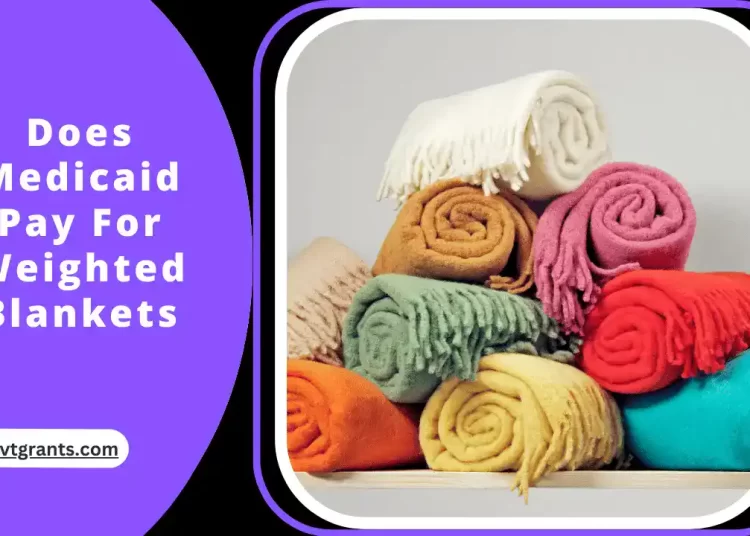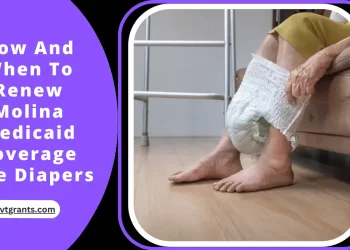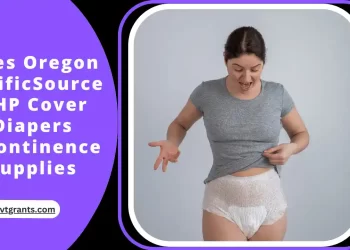Does Medicaid Pay For Weighted Blankets – Weighted blankets serve as a medical device and have been quite popular recently among individuals with certain disabilities. Research states weighted blankets benefit people with autism, anxiety, insomnia and other health conditions. For many individuals, these blankets have become a routine part of healthy sleeping habits and stress relief. But does insurance pay for weighted blankets? What about the Medicaid program? A lot of recipients question: ‘Does Medicaid pay for weighted Blankets’? However, the answer may not be as straightforward as the question.
Depending on your plan, weighted blankets may or may not be covered by your state’s Medicaid program. Weighted blankets are known to be medical devices that are subjected to insurance legislation governing the state where they are purchased.
In this guide, we will answer the following most pertinent questions among recipients:
- What is a weighted blanket and how does it work?
- Why would you want a weighted blanket?
- Does Medicaid cover the cost of a weighted blanket?
Highlights of this Post
What Is A Weighted Blanket And How Does It Work?
Weighted blankets are therapeutic blankets that weigh about 5 and 30 lbs. They are similar to normal blankets but with glass beads or plastic pellet weights embedded in them.
Being heavier than normal blankets the weighted blankets give the same feeling of a gentle squeeze or hug. The extra weight of the blanket creates pressure that serves as a therapeutic technique called pressure therapy or deep pressure stimulation.
Following are the benefits of using weighted blankets that help to relax the nervous system by creating deep pressure stimulation:
- Improve your sleep quality
- Reduce symptoms of anxiety
- Relief the perception of pain
- Relief symptoms of depression
Research, including studies published in The American Journal of Occupational Therapy, Different studies reported that weighted blankets help in the management of patients with anxiety disorder, autism, insomnia, night terrors, ADHD, stress, fibromyalgia, chronic pain or other conditions.
Head over to our next guide to know how to get free braces with Medicaid.
What Is The Cost Of Weighted Blanket?
If your doctor has recommended you to use a weighted blanket depending on your health condition then it is important to use it as per the instruction. There are many types of weighted blankets available in the market with different price tags depending on the benefits and features that they offer.
These include minky weighted blanket, freeze magic weighted blanket, cotton magic weighted blanket, waterproof weighted blanket and custom weighted blanket. On an average, the price of a weighted blanket ranges between $25 and goes high up to $400. For instance, popular options like the YnM Weighted Blanket can cost around $60 to $100, while higher-end versions like the Gravity Blanket can exceed $200. The price often reflects the quality, durability, and additional features like cooling technology.
Who Can Benefit From A Weighted Blanket?
Researchers have found the effectiveness of weighted blankets in alleviating emotional and physical symptoms. The following is the list of benefits of a weighted blanket for several health conditions:
- Anxiety: Weighted blankets helped in the treatment of anxiety, as supported by research from the Journal of Clinical Sleep Medicine. The deep pressure stimulation that comes from the weighted blanket helps in reducing auto-normal arousal which is responsible for physical symptoms of anxiety like increased heart rate.
- Autism: A recent research from Journal of Sleep Research In 2017 found positive benefits of the deep pressure therapy resulting from weighted blankets in autistic people especially children who find it difficult to sleep. A symptom of autism is having trouble sleeping. Weighted blankets help autistic people with issues with proper sleeping. The pressure therapy helped with social anxiety and tense muscles.
- Insomnia or other Sleep Disorders: Weighted blankets help to calm your heart and breathing and make it easier to relax before you sleep. Weighted blankets help improve quality and help people get to sleep. They offer comfort to children who struggle with sleep.
- Attention Deficit Hyperactivity Disorder (ADHD): A 2014 study revealed that weighted blankets are used in ADHD therapy to improve attention and reduce hyperactivity movements. Researchers discovered promising results for those who used the weighted blankets during continuous performance test.
- Chronic Pain: Weighted blankets are helpful to relieve chronic pain especially those who are living with anxiety.
- Alzheimer’s: Weighted blankets are great for individuals who suffer from Alzheimer’s, a standard form of dementia. People with Alzheimer’s face depression, exhaustion and fear and having a weighted blanket can decrease the feelings of anxiety and depression in a few patients.
Readers can take a look at our next guide to know if they can get pediatric diapers covered by Medicaid.
Does Medicaid Cover Weighted Blankets?
Medicaid is a joint federal and state health insurance program that offers health care costs for eligible low-income households. When it comes to getting coverage for a weighted blanket it is critical to find its medication functionality since Medicaid will pay for medical equipment that is deemed medically necessary for the patient.
Medicaid coverage for weighted blankets may differ depending on your state policy on the definition of durable medical devices. There are a lot of issues and benefits to using weighted blankets as it is helpful for the treatment of autism, Alzheimer’s, ADHD, sleep disorder, PTSD and many more.
You must contact your state or local Medicaid office to learn if you can cover weighted blankets through the Medicaid program as part of medical devices. Children with special needs and a medical condition that require a weighted blanket have the best chance to get Medicaid coverage.
A few private insurance companies will see weighted blankets as a medically necessary device while others may not. So it is advisable to speak to your healthcare provider or Medicaid agency to determine whether they cover weighted blankets.
The state Medicaid policy may change regularly so you can go through the following list of Medicaid websites depending on your state of residence:
- Alabama: https://medicaid.alabama.gov/
- Alaska: https://health.alaska.gov/dpa/Pages/medicaid/default.aspx
- Arizona: https://www.azahcccs.gov/
- Arkansas: https://humanservices.arkansas.gov/divisions-shared-services/medical-services/
- California: https://www.benefits.gov/benefit/1620
- Colorado: https://www.healthfirstcolorado.com/
- Connecticut: https://portal.ct.gov/HUSKY
- Delaware: https://dhss.delaware.gov/dmma/
- District of Columbia: https://dhcf.dc.gov/service/medicaid
- Florida: https://www.flmedicaidmanagedcare.com/
- Georgia: https://medicaid.georgia.gov/
- Hawaii: https://medquest.hawaii.gov/en/about/what-is-medicaid.html
- Idaho: https://healthandwelfare.idaho.gov/services-programs/medicaid-health
- Illinois: https://abe.illinis.gov/abe/access/
- Indiana: https://www.in.gov/medicaid/
- Iowa: https://dhs.iowa.gov/ime/members
- Kansas: https://www.kancare.ks.gov/
- Kentucky: https://chfs.ky.gov/agencies/dms/Pages/default.aspx
- Louisiana: https://ldh.la.gov/page/4125
- Maine: https://www.maine.gov/dhhs/oms
- Maryland: https://health.maryland.gov/mmcp/pages/home.aspx
- Massachusetts: https://www.mass.gov/topics/masshealth
- Michigan: https://www.michigan.gov/mdhhs/assistance-programs/medicaid
- Minnesota: https://mn.gov/dhs/people-we-serve/adults/health-care/health-care-programs/programs-and-services/medical-assistance.jsp
- Mississippi: https://medicaid.ms.gov/
- Missouri: https://mydss.mo.gov/healthcare
- Montana: https://dphhs.mt.gov/montanahealthcareprograms/memberservices
- Nebraska: https://dhhs.ne.gov/Pages/Medicaid-Eligibility.aspx
- Nevada: https://www.medicaid.nv.gov/
- New Hampshire: https://www.dhhs.nh.gov/programs-services/medicaid
- New Jersey: https://www.state.nj.us/humanservices/dmahs/clients/medicaid/
- New Mexico: https://nmmedicaid.portal.conduent.com/static/index.htm
- New York: https://www.health.ny.gov/health_care/medicaid/
- North Carolina: https://medicaid.ncdhhs.gov/
- North Dakota: https://www.nd.gov/dhs/services/medicalserv/medicaid/
- Ohio: https://medicaid.ohio.gov/
- Oklahoma: https://oklahoma.gov/ohca.html
- Oregon: https://www.oregon.gov/oha/hsd/ohp/pages/apply.aspx
- Pennsylvania: https://www.dhs.pa.gov/Pages/default.aspx
- Rhode Island: https://healthsourceri.com/medicaid/
- South Carolina: https://www.scdhhs.gov/
- South Dakota: https://dss.sd.gov/medicaid/
- Tennessee: https://www.tn.gov/tenncare/members-applicants/eligibility/tenncare-medicaid.html
- Texas: https://www.hhs.texas.gov/services/health/medicaid-chip
- Utah: https://medicaid.utah.gov/
- Vermont: https://dvha.vermont.gov/members
- Virginia https://www.dmas.virginia.gov/
- Washington: https://www.hca.wa.gov/health-care-services-supports/apple-health-medicaid-coverage
- West Virginia: https://dhhr.wv.gov/bms/pages/default.aspx
- Wisconsin: https://www.dhs.wisconsin.gov/medicaid/index.htm
- Wyoming: https://health.wyo.gov/healthcarefin/medicaid.
Want to know how to get a free YMCA membership with medicaid? Read our next guide here.
What Are The Steps To Get Insurance Coverage For Weighted Blankets?
Generally, the Medicaid program is geared towards low-income households that offer preventive services and non-essential comfort items apart from medical necessities are not included in the plan. If your state Medicaid program is covering weighted blankets you need to take the below-mentioned steps:
- Check Your State’s Medicaid Policies: The first and foremost step is to check the Medicaid program policy of your state since every state has its version of the Medicaid program with different rules, coverage and benefits.
- Consult Your Healthcare Insurance Provider: You need to contact your local Medicaid office or insurance company to see if you’re eligible to get coverage for the weighted blanket. You can also purchase a weighted blanket and provide the receipt to see if you are eligible for reimbursement. Speaking with your healthcare provider will help you learn if these blankets are deemed medically necessary for you.
- Seek A Prescription From A Professional Medical Personnel: You may need to obtain a prescription from your healthcare professional or your child’s pediatrician that will help you in the long run. Apart from a formal prescription from your doctor, your state’s Medicaid program requires additional documentation such as a medical necessity letter, proof of your diagnosis, and documents about coverage through other health insurance programs.
- Find A Durable Medical Equipment Provider: You also need to find a durable medical equipment provider in your local area and see if they can handle the insurance claim for you.
Our next guide will help you learn how to get a free fitbit through Medicaid.
What Are The Low-Cost Ways To Purchase A Weighted Blanket?
Even if you are reimbursed by the Medicaid program in your state you need to buy a weighted blanket. While these items can be expensive there are amazing options that can help you get them for less than $50 on Amazon.
For instance, the Yescool weighted blanket for adults comes in different weights and sizes. It comes with a cooling feature that makes it the perfect sleeping partner and costs only $37.
The MAXTID weighted blanket for children comes in various weights and sizes and starts at only $39. You need to explore additional funding options like nonprofits, community centers and charitable organizations that can provide you assistance with weighted blankets. Organizations like Project Linus or local community health centers may provide assistance or even free weighted blankets. Some private insurance plans may reimburse the cost if the blanket is deemed medically necessary.
Read our next guide to know how to get free gym membership with medicaid.
Conclusion
In conclusion, the Medicaid program generally does not cover weighted blankets since they are considered comfort items instead of medically necessary equipment. However, the coverage may vary from state to state and the few Medicaid plans may provide coverage for weighted blankets. We hope this guide has been informative enough to give you insights into the most common question among many people: ‘Does Medicaid pay for weighted blankets’? It is always recommended to contact your local Medicaid office to get up-to-date information regarding what is covered. If the Medicaid program is covering weighted coverage then you must get a prescription from your pediatrician or doctor. You must contact your insurance company or visit the local Medicaid office to see if you qualify for weighted blanket coverage. You also need to find a durable medical equipment provider in your area who can handle the insurance claim on your behalf.
Check out our blog at Get Government Grants to avail free resources and government programs for low-income families. Our guide has numerous supportive programs and names of organizations that help people in times of need.
Frequently Asked Questions
Can A Doctor Prescribe A Weighted Blanket?
Your pediatrician or doctor will write your prescription for a weighted blanket. Weighted blankets are generally considered durable medical equipment and may be covered depending on your insurance policy.
Are Weighted Blankets Covered By HSA?
A weighted blanket is not eligible for reimbursement with the FSA (Flexible Spending Account), HSA (Health Savings Account), HRA (Health Reimbursement Arrangement), LPFSA (Limited Purpose Flexible Spending Account) or DCFSA (Dependent Care Flexible Spending Account).
Who Cannot Use A Weighted Blanket?
Weighted blankets are not suitable for those with certain medical conditions such as circulatory issues or chronic respiratory, asthma, sleep apnea, type 2 diabetes, low blood pressure, claustrophobia and epilepsy. These blankets are also not recommended for infants and young children as it can lead to choking hazards especially babies under one year o



















